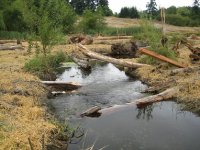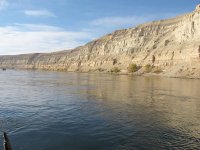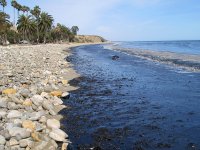St. Regis Mohawk Tribe and Co-Trustees Release Draft Restoration Plan for Water Access Projects on Tribal Lands
March 19, 2024
Trustees for the St. Lawrence River case have released a Draft Restoration Plan and Environmental Assessment (RP/EA) (PDF, 56 pages) and are currently accepting public comment.
The St. Lawrence River case centers on the release of contaminants from three industrial facilities to the St. Lawrence River and its tributaries, in the Town of Massena and within the Akwesasne Tribal lands in upstate New York. The St. Lawrence Environment Trustee Council (SLETC) is comprised of The St. Regis Mohawk Tribe (SRMT)—the lead administrative Trustee for the case—and Co-Trustees New York State Department of Environmental Conservation (NYSDEC), National Oceanic and Atmospheric Administration (NOAA), and the U.S. Fish and Wildlife Service (U.S. FWS). The SLETC is responsible for planning and implementing restoration of natural resources injured by the contamination and loss of public uses in the St. Lawrence River watershed.
In 2013, the SLETC released its Restoration and Compensation Determination Plan (RCDP), identifying resources injured and public uses affected by the contamination. Contaminants including polychlorinated biphenyls, polycyclic aromatic hydrocarbons, fluoride, and metals were released from three facilities beginning in 1981, and have been transported throughout the environment, causing injuries to natural resources such as lake sturgeon, freshwater mussels, birds and wildlife, and freshwater wetlands. Public uses, such as boating, subsistence fishing, and foraging by the SRMT were also negatively affected.
The SLETC has proposed three public access projects along the St. Regis and Raquette Rivers. The Akwesasne Water Access Projects will partially compensate the public for ecological and recreational fishing losses resulting from the contamination by restoring streambank habitat and public access to rivers. The projects will also provide economic, cultural, educational, and recreational benefits to Akwesasne Tribal lands and the regional community. The proposed Water Access Projects include:
- Skén:nen Park West Project: a riverfront park with river and fishing access located along the St. Regis River in Akwesasne, just west of a former dam
- Skén:nen Park East Project: public access to the St. Regis River, a nearshore fishing structure and viewing platform, cultural and environmental educational exhibits, and parking
- The Raquette River Public Access Project: a public boat launch with floating docks, nearshore fishing structures, and parking. Currently, there are no public boat launches to Akwesasne waters which limits water access
Additional project features include streambank stabilization, native vegetation plantings, installation of river platforms for wildlife viewing and recreational fishing, all-persons pedestrian walkways and trails, a small boat launch, parking, informational/educational signage and kiosks, and stormwater management and erosion control features.
How to Comment
The SLETC has prepared a Draft RP/EA (PDF, 56 pages) that describes these projects in greater detail. The purpose of the Draft RP/EA is to present the preferred alternative for funding, along with no action, for consideration by the public. The Trustees encourage comments from the public, and are providing a 30-day period, until April 18, 2024, to submit comments on the document. Those interested can secure a hardcopy of the document, or submit public comments on the document by submitting to:
Mr. Tony David
Director, Environment Division
St. Regis Mohawk Tribe
449 Frogtown Road
Akwesasne, NewYork 13655
tony.david@srmt-nsn.gov
The Trustees welcome comments through April 18, 2024, to be reviewed and considered in preparing a Final RP/EA for public release.
For more information and to stay in the know, sign up for DARRP’s Coastal Recovery news.






